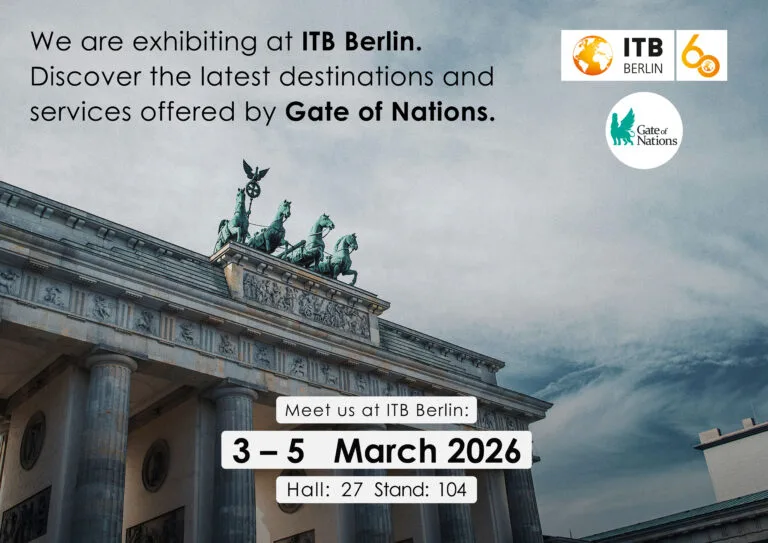The Benefits of Artificial Intelligence in the Tourism Industry
Artificial Intelligence (AI) has become an integral part of many industries, and tourism is no exception. With its ability to process large amounts of data quickly and make data-driven decisions, AI has the potential to revolutionize the tourism sector by improving efficiency, personalizing services, and enhancing the overall travel experience. From planning trips to optimizing travel experiences, AI can contribute to both the commercial success of tourism businesses and the environmental sustainability of the sector. In this article, we explore how AI can enhance the tourism industry in different stages of the travel process, such as planning, execution, and travel writing, while promoting eco-friendly practices and sustainable development.
Key Benefits of AI in the Tourism Industry
- Personalized Travel Experiences
AI-powered systems can analyze data from past customer behaviors, preferences, and feedback to offer highly personalized recommendations for destinations, accommodations, activities, and services. For example, AI can suggest the best hotel based on previous stays, suggest activities based on the traveler’s interests, or even recommend restaurants that align with dietary preferences. - Efficient Trip Planning
AI can automate the trip planning process by integrating data from various sources such as flight schedules, weather patterns, hotel availability, and local events. AI tools can create personalized itineraries for travelers, offering real-time suggestions and adjustments based on factors like weather changes or flight delays. This leads to smoother planning and a more efficient experience for both travel agencies and tourists. - Cost Optimization and Dynamic Pricing
AI can analyze trends in pricing, demand, and customer behavior to optimize prices for flights, accommodations, and other travel services. Dynamic pricing, powered by AI, adjusts the cost of services in real-time to match demand fluctuations, ensuring that customers get the best value while helping businesses maximize profits. - Enhanced Customer Support and Chatbots
AI-driven chatbots and virtual assistants have transformed customer service in the tourism industry. These systems are available 24/7 to assist travelers with booking, inquiries, and support, reducing wait times and increasing efficiency. Furthermore, they can be multilingual, making them accessible to a global audience. - Sustainability and Eco-Friendly Practices
AI can play a pivotal role in promoting sustainable tourism. AI can track the environmental impact of travel, helping travelers make more eco-conscious choices such as choosing eco-friendly hotels, reducing carbon footprints, and identifying off-the-beaten-path destinations that can alleviate overcrowding in popular tourist sites. AI-based systems can also help in monitoring the environmental impact of tourism activities and suggest measures to minimize negative effects. - Smart Transportation Systems
AI can optimize transportation networks, making travel more efficient and environmentally friendly. From smart traffic management systems to AI-assisted public transportation routing, AI can reduce congestion and carbon emissions. Additionally, AI can encourage the use of eco-friendly transport options, such as electric vehicles or shared mobility services. - Data-Driven Marketing and Customer Segmentation
AI enables tourism businesses to segment customers more effectively, tailoring marketing campaigns to specific demographics, preferences, and travel behaviors. Machine learning algorithms can predict future trends, allowing businesses to stay ahead of customer demands and make strategic decisions that improve engagement and conversion rates.
AI Applications in Different Phases of Tourism
- Planning Stage:
- Personalized Itinerary Creation: AI algorithms can curate personalized itineraries by analyzing traveler preferences and suggesting activities, restaurants, and accommodations.
- Real-Time Pricing Adjustments: AI-driven platforms can offer real-time price comparisons and suggest optimal travel dates, hotels, and services based on demand and availability.
- Predictive Analysis for Travel Trends: AI can use historical data to forecast trends in tourism, allowing businesses to proactively adjust their offerings and pricing strategies.
- Smart Packing Assistance: AI-powered apps can analyze the traveler’s itinerary, destination weather, and personal preferences to suggest packing lists.
- Execution Stage:
- AI-Driven Customer Support: Chatbots or virtual assistants provide real-time assistance, addressing customer concerns about bookings, directions, or other travel-related queries.
- Tour Guide Robots: AI-powered robots or virtual guides can assist tourists with information at destinations, museums, and other points of interest.
- Sustainable Travel Guidance: AI systems can suggest eco-friendly travel options, such as using public transport or recommending accommodations with green certifications.
- Crowd Management: AI can predict tourist traffic at various attractions, guiding visitors to less crowded alternatives to minimize overcrowding and reduce environmental pressure.
- Tour Writing & Content Creation:
- Automated Travel Content: AI tools can generate blog posts, social media content, and travel guides, saving time for travel writers while ensuring the content is up-to-date and relevant.
- Personalized Reviews: AI can sift through reviews and feedback to present the most relevant information to travelers, highlighting the aspects of a destination or service that are most important to them.
- Social Media Insights: AI can analyze user-generated content on social media platforms to understand emerging trends and traveler sentiments, helping travel agencies or writers stay ahead of the curve.
Sustainability and Eco-Friendly Advantages of AI in Tourism
- Reducing Carbon Footprint: By optimizing travel plans, transportation routes, and energy use, AI can significantly reduce the overall carbon footprint of the tourism industry. For example, AI can help shift tourists away from high-carbon modes of transport like air travel, encouraging train or electric vehicle travel.
- Conserving Resources: AI can help identify opportunities for energy savings in hotels, transportation, and attractions. Smart systems powered by AI can monitor resource use in real time (water, electricity) and recommend actions to minimize waste.
- Responsible Tourism Practices: AI can track visitor numbers at tourist attractions, helping to distribute tourists more evenly across locations and reducing the negative impacts of overtourism. This helps protect natural resources and supports local communities by preventing overcrowding.
- Supporting Local Economies: AI can encourage the discovery of lesser-known destinations, supporting local businesses and helping to spread the economic benefits of tourism more evenly. This can contribute to more sustainable, long-term growth for the industry.
Conclusion:
Artificial Intelligence is reshaping the tourism industry in profound ways, providing solutions that enhance personalization, improve operational efficiency, and promote sustainability. By leveraging AI, the tourism industry can create more eco-friendly travel experiences, reduce its environmental impact, and ensure that it remains adaptable to changing market conditions. As AI continues to evolve, its applications in tourism will become even more sophisticated, offering exciting opportunities for both businesses and travelers while supporting the long-term sustainability of the industry.
Siamak Ekhtary




